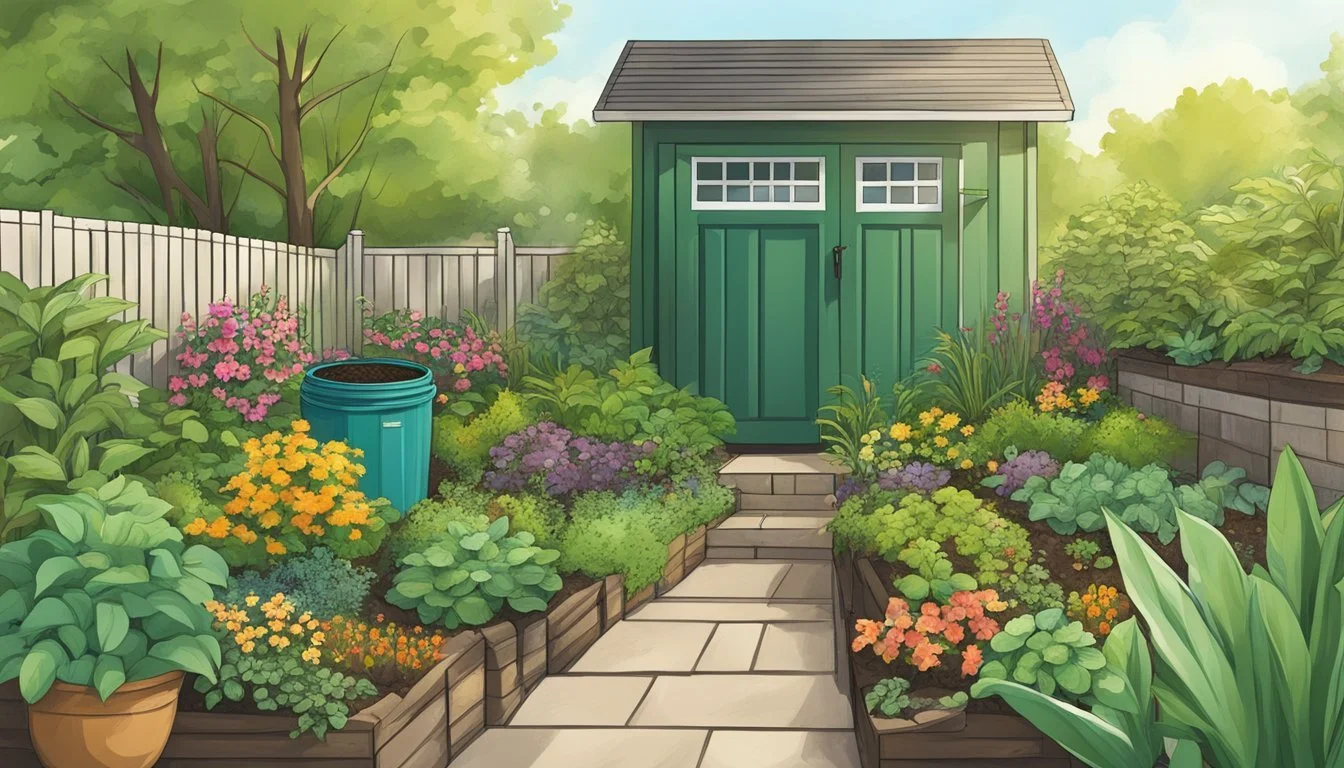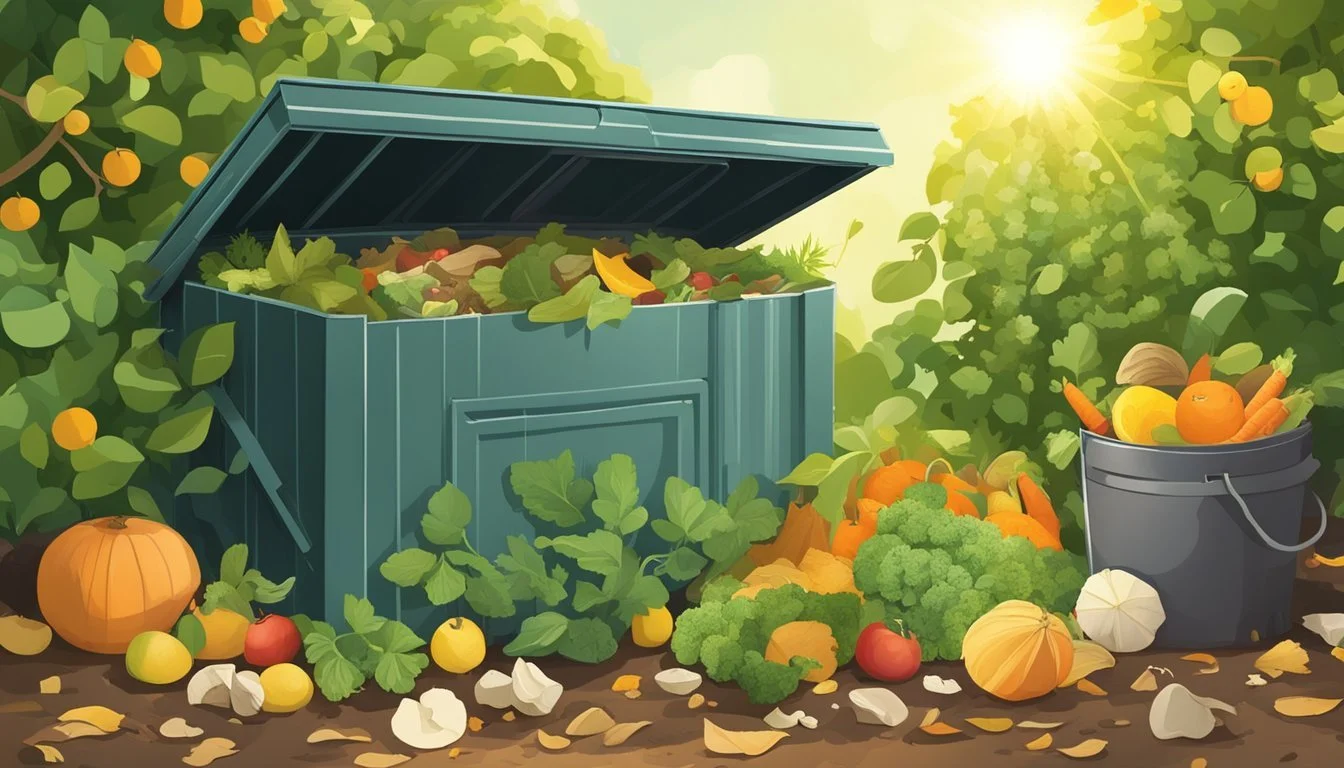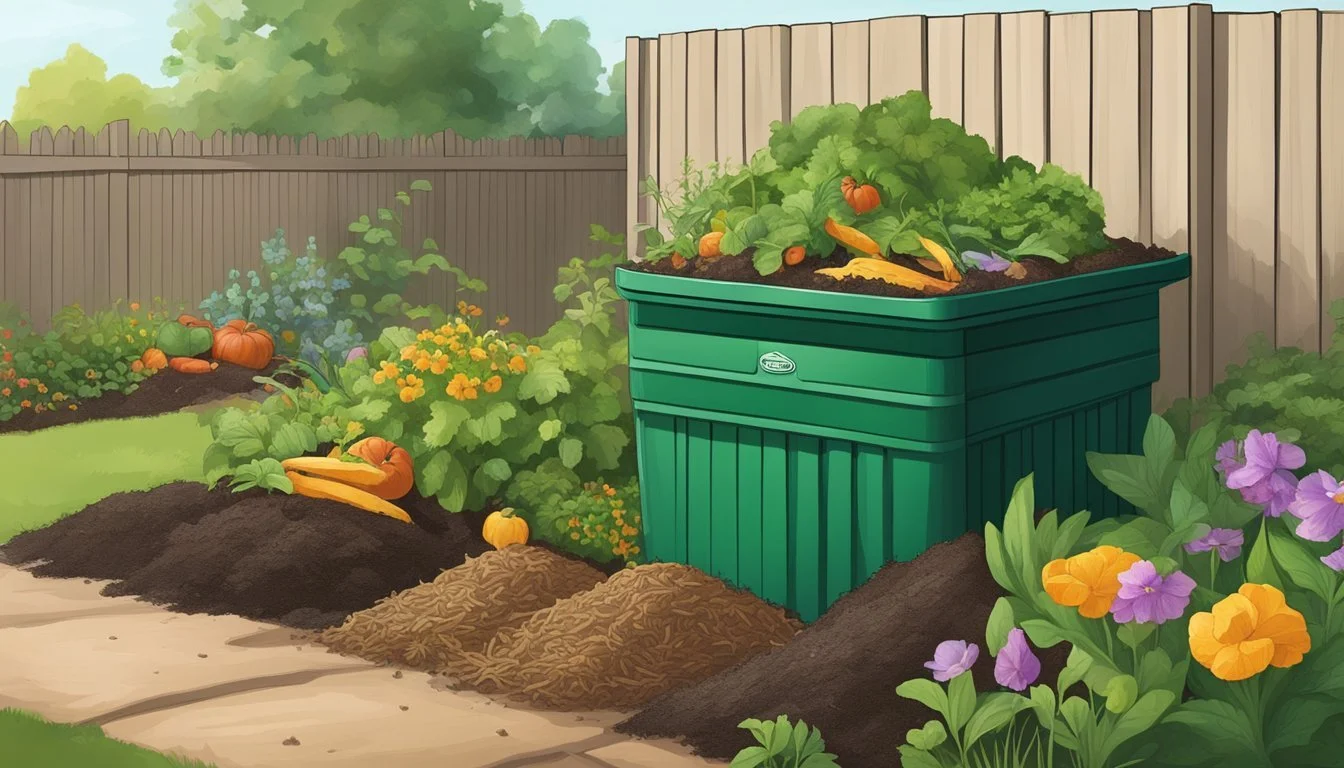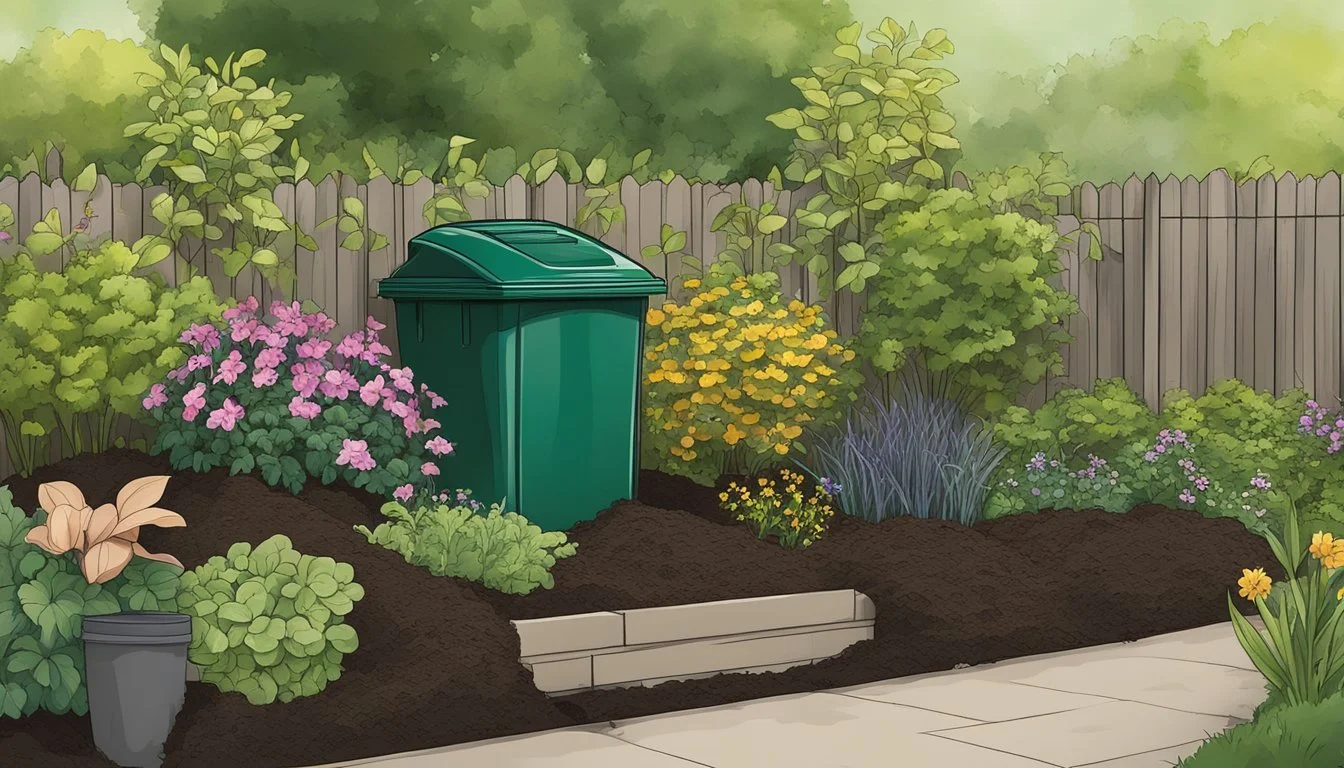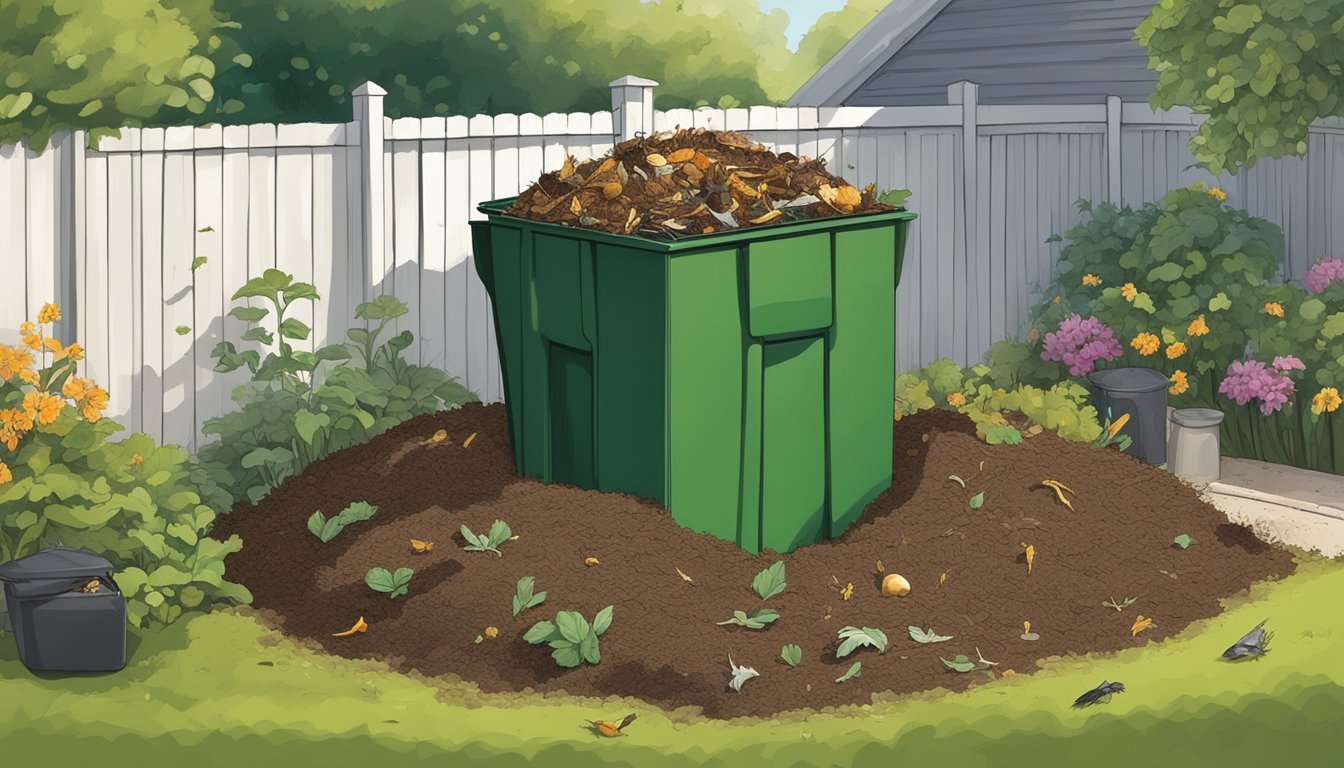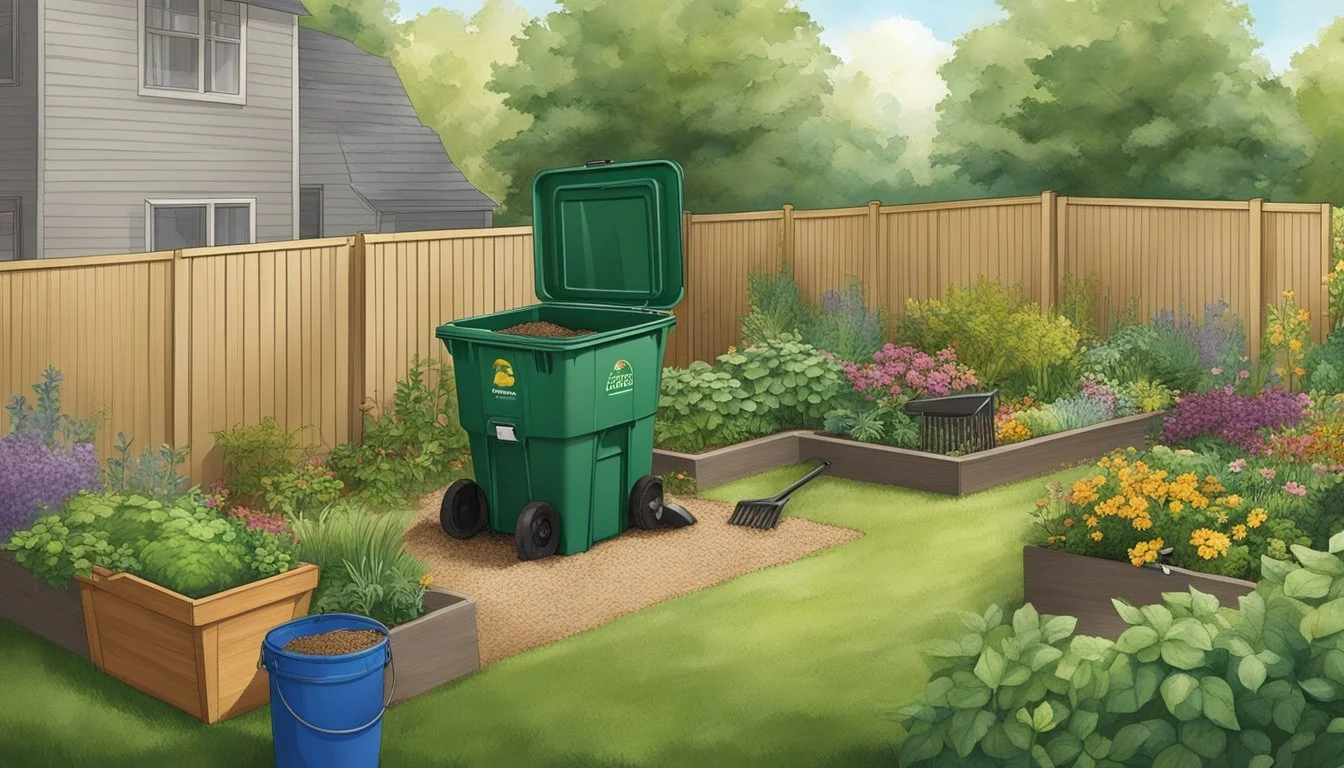Guide to Composting in Peoria, IL
Essential Tips for Local Residents
Composting is not only a beneficial practice for the environment but also a simple way to recycle organic waste into nutrient-rich soil for gardens and landscapes. In Peoria, Illinois, residents have the opportunity to contribute to sustainability and waste reduction through both residential and commercial composting programs. By turning food scraps, yard waste, and other biodegradable materials into compost, they can significantly decrease their ecological footprint while creating a natural fertilizer that enhances soil quality.
The City of Peoria supports composting efforts by providing information and resources to help locals understand the composting process and get started with their own compost piles or bins. Whether it's backyard composting or utilizing local composting facilities, the community members of Peoria can participate in a natural form of recycling. This environmentally friendly process aligns with the wider movement towards sustainability and responsible waste management.
Through educational brochures and community programs, Peoria County encourages residents to learn more about the advantages of composting, such as the potential for cost savings, resource conservation, and improved soil health. The guidance available to Peorians aims to make composting an accessible and rewarding endeavor for everyone, from those with a green thumb to beginners interested in making a positive environmental impact.
Benefits of Composting
Composting in Peoria is a transformative process that adds value to the environment and the community by creating nutrient-rich soil, reducing landfill waste, and supporting recycling efforts.
Environmental Impact
Composting significantly mitigates environmental concerns associated with landfills. When organic materials like food waste are sent to landfills, they decompose anaerobically, producing methane, a potent greenhouse gas. By composting, Peoria residents transform this organic waste into beneficial compost, which reduces methane emissions and contributes to a healthier environment.
Improvement of Soil Quality
The utilization of compost improves soil structure, texture, and aeration. It enhances the soil's ability to retain water and nutrients, thereby reducing the need for chemical fertilizers. This nutrient-rich soil is an excellent amendment, making it a valuable resource for gardeners and farmers alike. The intervention of Better Earth Logistics in residential and commercial composting amplifies these benefits.
Reduction in Waste
Composting stands as an efficient form of recycling that addresses the burgeoning issue of waste. Nearly 30 percent of waste produced by households comprises organic matter which can be composted. By diverting food scraps and yard waste from landfills to composting facilities, Peoria not only reduces its environmental footprint but also lowers waste hauling costs, demonstrating an economic advantage for businesses and residents.
Composting Basics
Composting is an environmentally-friendly method to recycle organic material into rich soil for your garden. It's a practice accessible to residents of Peoria, Illinois, and can be managed effectively at home with proper guidance and materials.
Understanding Composting
Composting is the process by which organic waste decomposes into a nutrient-rich soil amendment. It involves balancing "green" materials, such as food scraps which are high in nitrogen, with "brown" materials like dry leaves and cardboard that are high in carbon. A successful compost should not smell bad; if it does, it may be too wet or need more brown material.
Choosing the Right Location
Find a spot in your yard that is level, well-drained, and accessible. The location should have contact with the soil to allow for the entrance of microorganisms and should be close to a water source for maintaining moisture. However, it should not be so close to your home to cause any inconvenience.
Selecting the Right Compost Bin
Selecting the appropriate compost bin is crucial. Bins can be purchased or built at home and typically range up to one cubic yard in size. Factors to consider include ease of access, durability, and ventilation. Some bins have tumblers for easy turning of the compost, which is essential for aeration and speeding the composting process.
What to Compost
When composting in Peoria, IL, individuals can transform various organic materials into nutrient-rich soil amendments for gardening and landscaping. This section will detail which items are suitable for a home composting setup.
Green Waste
Green waste refers to the nitrogen-rich organic materials that are essential for the composting process. Residents of Peoria can include grass clippings, fresh leaves, vegetable scraps, coffee grounds, and tea bags in their compost bins. These materials should be mixed with brown waste to maintain a balanced compost pile.
Brown Waste
Brown waste provides the necessary carbon balance to the compost mix. Acceptable brown materials are shredded paper, sawdust, wood chips, and dead leaves. It's important to ensure these items are not treated with chemicals or inks that could harm the composting process.
Acceptable Food Waste
The City of Peoria advocates for composting various food scraps such as egg shells, nut shells, and certain food scraps. However, it is important to avoid adding meats, bones, dairy, and fats to prevent attracting pests and producing unpleasant odors.
Items to Exclude
Certain materials are not suitable for composting and should be excluded to maintain a healthy compost pile. These include meat, bones, dairy products, and fats, as they can attract pests and cause the compost to smell. Additionally, diseased plants and invasive weeds should be avoided as they can spread pathogens or seeds through the compost.
How to Compost
Starting a compost pile is an effective way to convert yard and kitchen waste into nutrient-rich soil. The following steps will guide residents of Peoria, Illinois, on how to compost effectively, focusing on key elements such as proper layering, maintaining moisture and aeration, and regular turning and monitoring of the compost pile.
Layering Your Compost
To begin composting, one should create alternating layers of green and brown materials in their bin or designated compost area. Start with a layer of brown materials, such as dry leaves or straw, to allow for drainage and aeration. Follow this with a layer of green materials, including vegetable scraps, grass clippings, or compostable products. The ideal ratio is typically three parts brown to one part green. These layers should be repeated until the bin or pile is full.
Maintaining Moisture and Aeration
A compost pile requires the right balance of water and air to decompose efficiently. The compost should be kept as moist as a wrung-out sponge. If the pile gets too dry, one should add water to maintain proper moisture levels. To ensure sufficient aeration, one can turn the pile with a compost fork or insert perforated PVC pipes into the pile to allow air to circulate.
Turning and Monitoring
Regular turning is crucial to decompose the materials evenly and maintain a consistent temperature within the pile, which should be between 135-160°F for optimal microbial activity. One should turn the compost every few weeks, bringing material from the edges to the center to ensure that all parts of the pile reach the necessary temperatures to break down materials into soil. During the turning process, it is also a good time to monitor the pile's conditions, checking for adequate moisture and aeration.
Advanced Composting Techniques
When embracing composting in Peoria, IL, understanding advanced techniques enhances the efficiency and effectiveness of recycling organic material. These methods go beyond basic composting, offering ways to optimize and adapt the process to different conditions, materials, and goals.
Vermicomposting
Vermicomposting harnesses the natural behavior of worms to break down organic material more rapidly than traditional composting methods. Essential resources for this technique include a worm bin, red wigglers, and a balance of "green" materials like coffee grounds for nitrogen and "brown" materials for carbon. Properly managed, vermicomposting in Peoria provides not only nutrient-rich soil but also a means of reducing household waste.
Composting in Cold Climates
Composting in colder climates, such as that of Peoria during winter months, requires special attention to insulation and protection from the elements to maintain microbial activity. One can utilize straw bales or insulated compost bins to retain heat, and balance the green to brown materials ratio to ensure the pile continues to generate its own heat. Adding composting to cold climates requires diligent monitoring but yields year-round benefits.
Enhancing the Composting Process
To boost the composting process, aeration and a proper balance of organic material are key. Tools like compost turners or aeration spikes can introduce oxygen necessary for microbial activity. Adding grass clippings is a natural way to infuse nitrogen into the pile, speeding up decomposition. By meticulously managing moisture levels and material ratios, the composting process in Peoria can be significantly enhanced.
For those in Peoria looking for detailed information or local composting products, visiting the Better Earth Compost website might provide valuable guidance. Additionally, for advanced learners wishing to refine their composting skills, local workshops through University of Illinois Extension may offer the necessary resources.
Using Your Finished Compost
Once the composting process has yielded finished compost, it becomes a valuable resource for various applications in the gardener's world. Rich in nutrients, it's ready to be used to enrich the soil and promote plant health.
In Your Garden
The garden greatly benefits from the addition of finished compost. In a vegetable garden, applying compost will not only improve soil structure but also provide a steady release of essential nutrients for plants. One can incorporate a few inches of compost into the topsoil before planting season to promote healthy growth of vegetables.
For Your Lawn
For lawns, using compost as a natural fertilizer can help achieve a lush, green look. A homeowner may choose to purchase a compost spreader or simply apply a thin layer (usually no more than 1/2 inch) of compost over the grass. This practice can aid in water retention and introduce beneficial microorganisms to the lawn's soil.
As Potting Mix
Finished compost can be a key component of a homemade potting mix. It's often mixed in equal parts with vermiculite and topsoil to enhance water retention and aeration. Gardeners looking to repot indoor plants or starting seedlings will find that a potting mix containing their own compost is both cost-effective and rewarding. This online guide to creating a homemade potting mix can be especially helpful for those new to using compost in this way.
Troubleshooting Common Composting Issues
In composting, managing the balance of materials, moisture, and temperature is crucial for reducing odor, deterring pests, and promoting efficient decomposition. Below are specific solutions to address common problems encountered when composting in Peoria, IL.
Odor Problems
Cause: Odor often arises from an imbalance in the carbon-to-nitrogen ratio or insufficient airflow.
Solution: Ensuring a C/N ratio of about 25-30:1 and turning the bin regularly to enhance airflow can help control odor.
Pests and Rodents
Cause: Attraction of pests and rodents is typically due to accessible food scraps in the compost bin.
Solution: Preventing such issues involves using a bin with a tight-fitting lid and layering kitchen waste with brown materials like leaves or straw to mask the odors.
Slow Decomposition
Cause: Slow decomposition can be a result of poor aeration, an imbalance of materials, or unsuitable temperatures.
Solution: Regularly turning the compost and maintaining an appropriate balance between green and brown waste will speed up the process. Adjusting the temperature within the bin is also essential.
Wet or Dry Compost
Wet Compost:
Cause: Excessive moisture due to too many green materials or improper drainage.
Solution: Adding more brown materials like dried leaves or straw can absorb the excess moisture.
Dry Compost:
Cause: Lack of sufficient green waste or water.
Solution: Introducing more green materials and water ensures the compost remains damp but not soaked, fostering ideal decomposition conditions.
Local Composting Resources in Peoria, IL
Peoria, Illinois, offers a variety of composting resources for residents to turn organic waste into valuable soil amendments. From city-led programs to community-driven initiatives, there are ample opportunities for individuals to contribute to environmental sustainability.
City Composting Programs
The City of Peoria has established composting programs that encourage residential participation. One such program allows residents to compost in their own backyards or bring their compostable waste to on-site composting facilities. This initiative supports the city’s goals to reduce landfill use and transform organic waste into useful organic material.
Community Gardens and Initiatives
Community gardens in Peoria often incorporate composting as a key component of sustainable gardening. Local initiatives, like the one by Better Earth Logistics, include services such as compost kiosks where members can deposit their compostable materials. These programs are designed to educate the public and facilitate the process of turning waste into resourceful compost for garden use.
Educational Workshops and Events
For those looking to deepen their knowledge on composting, educational workshops and events are regularly available. The Peoria County government offers residents resources and informative brochures on both residential and commercial composting practices. Additionally, local events frequently provide residents with hands-on experience and information on the environmental benefits of composting, aligning with guidance from resources like the EPA.
Conclusion
Composting in Peoria, Illinois, offers residents a practical method to recycle organic waste while contributing to environmental sustainability. The process is simple, yet its impact on soil quality and waste reduction is significant. Residents can engage in both backyard composting and commercial composting services to convert food and yard waste into nutrient-rich soil.
Key Points:
Composting is a natural form of recycling that has substantial environmental benefits, improving soil health and reducing landfill waste.
Resources are available through Peoria County and local extension offices that offer expertise in starting and maintaining compost piles.
The EPA endorses composting as a means to curb methane emissions from landfills, thus combating climate change.
Composting services, like Better Earth Compost, aim to simplify the process for those unable to compost at home.
Through community efforts and accessible information, Peoria continues to cultivate an environmentally conscious culture where composting is an integral part. For anyone interested in composting, ample support and resources exist to begin the journey toward a more sustainable lifestyle.
Appendix
This section provides essential details and tools necessary for successful composting in Peoria, IL. It includes definitions, legal regulations, and a practical checklist for home composting.
Glossary of Composting Terms
Biodegradable: Materials that degrade naturally by biological processes.
Compost: Decomposed organic material used as a soil amendment.
Green Waste: Nitrogen-rich organic matter, such as grass or vegetable scraps.
Brown Waste: Carbon-rich organic matter, such as leaves or paper.
Peoria Composting Regulations
Residential vs. Commercial: Peoria distinguishes between residential and commercial composting practices, with different guidelines and services available.
Acceptable Materials: In Peoria, acceptable compostable materials include food scraps and yard waste. However, it is important to verify which types are allowed as some materials might be excluded under local composting regulations.
Home Composting Set-Up Checklist
Select a Composting Bin: Choose a bin that suits the scale of your composting needs and available space.
Balance Green and Brown Waste: For optimal composting, maintain a balance of green and brown waste in your bin.
Regular Maintenance: Turn the compost pile regularly to introduce oxygen and check moisture levels.
By understanding these terms, regulations, and set-up essentials, individuals can effectively manage organic material through composting, contributing to a sustainable Peoria community.


